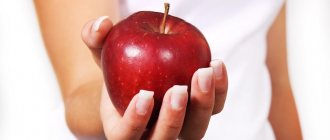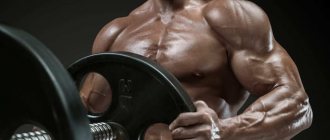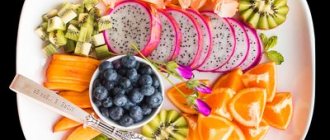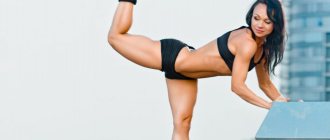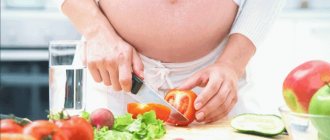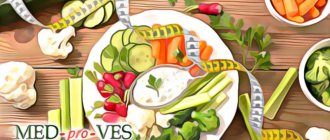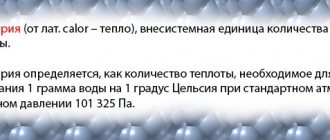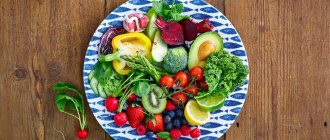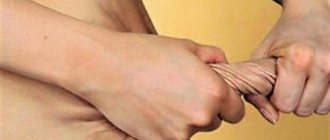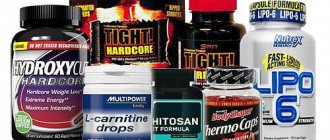Both healthy weight loss and weight gain are impossible without regular exercise. But even coaches insist that sport is about 30% of success. The remaining 70% is food. It is very important that the athlete’s menu and his training are correctly combined with each other. Nutrition when playing sports should be balanced, helping to saturate the body with all the necessary vitamins and minerals. Also, when creating a diet, you need to consider why you are working out: to lose weight, to gain weight, or just to stay in shape.
Proper nutrition and exercise: highlights
To achieve good results in sports, you need to observe the correct load during exercise, fully recover and, of course, eat properly. Proper nutrition when losing weight and playing sports should fulfill the following tasks:
- Activate and normalize metabolic processes in the body necessary for muscle growth and recovery.
- Saturate the body with all the necessary minerals and vitamins, provide sufficient calories.
- Adjust the weight depending on the goals of the trainee.
When performing exercises, the body uses a large amount of energy. Energy is needed to maintain the functioning of the heart, digestive and respiratory systems during exercise. If you eat poorly before training, your body may become exhausted, which will have an extremely negative impact on the athlete’s health. The menu should consist of fresh and nutritious foods.
The menu for how to eat when playing sports should be compiled individually, taking into account the age, weight, goals and objectives of the athlete, the characteristics and intensity of the load. However, there are also general principles. So, every meal should include a balanced ratio of proteins, fats and carbohydrates.
The optimal calculation formula for those involved in sports looks like this:
- 30-35% proteins
- 10-20% fat;
- 50-60% carbohydrates.
The optimal amount of protein in the diet when playing sports is 2-2.5 grams per kilogram of weight, fat - 0.5 g per kg of weight. Carbohydrates should be about 2 g per kg of weight if you want to lose weight, and 4-7 g per kg of weight if you need to gain. And before preparing for competitions and during the drying period, carbohydrates are reduced to 0.5-1 grams per kg of weight.
Let's look at what an approximate scheme would look like for men and women:
- If a man weighs 70 kg, then he needs 140 g of protein per day, 35 g of fat, and 210 g of carbohydrates to maintain weight, 280-490 g for weight gain and 140 g of carbohydrates. You can calculate the calories yourself, considering that a gram of protein and carbohydrates is equal to 4 kilocalories, and a gram of fat is 9 kcal. For example, to stay in the same weight category, an athlete weighing 70 kg needs about 2000 kcal.
- For a girl weighing 50 kg who wants to stay at the same weight, giving her muscles elasticity and correcting problem areas, she needs to eat about 60-80 grams of protein, 25 g of fat and 100-150 g of carbohydrates. When preparing meals for girls when playing sports to lose weight, we reduce the amount of carbohydrates accordingly.
It is recommended to eat in small portions, once every 3-4 hours. Thus, there will be 5-6 meals per day. Also, in how to eat properly when playing sports, you need to adhere to the following points:
- Of the 5-6 daily meals, three should be complete (breakfast, lunch and dinner), as well as 2-3 light snacks. This could be cottage cheese, fermented milk drinks, fruits, vegetables, etc.
- The serving size should be approximately the size of your palm.
- For breakfast, it is recommended to eat complex carbohydrates or a combination of carbohydrates and proteins.
- For lunch, it is not recommended to eat combinations such as meat (fish) with pasta (potatoes). The best option is cereals, protein foods and vegetables, especially if you still plan to visit the gym afterwards.
- It is better that the nutrition menu for losing weight while playing sports includes a protein dinner or a combination of proteins and vegetables. This will help the muscles recover after physical activity.
- On training days, you should absolutely not go hungry, as this can lead to exhaustion of the body and other negative consequences.
- Try not to eat in a hurry - this is the easiest way to consume prohibited foods. In addition, it is recommended not to eat from common dishes, but to put food on a plate - this will make it more convenient to control portion sizes.
- It is better to limit the amount of salt.
How many times a day can you eat food?
The usual eating plan that most people use, which is breakfast, lunch and dinner, is not suitable for bodybuilders. Since the breaks between meals are quite long, athletes have time to get very hungry during this time, since their metabolic processes go through much faster. The feeling of hunger forces the athlete’s body to feed on energy reserves that are always in the athlete’s body.
At these moments, the body begins to secrete the hormone cortisol, which begins to burn muscles, in conditions of decreasing energy potential of the body.
In addition, he begins to burn carbohydrates stored in the liver and muscles, and this cannot be allowed, since muscle mass is lost, which the athlete is trying to build up in training. Glycogen levels also decrease, which is an indicator of readiness for the next workout. The higher the level of glycogen in the liver and muscles, the greater the athlete's endurance and the greater his performance. In this case, the athlete needs to eat about 6 times a day, but in smaller portions. By reducing the time between meals, the athlete's body is constantly fed with glucose, which comes from the intestines. At the same time, the body does not touch glucose reserves and does not produce cortisol. But this is just one advantage of this approach to nutrition for athletes.
Eating according to this scheme speeds up the metabolic process, which also leads to accelerated muscle growth. There is another very important advantage of frequent meals: amino acids constantly nourish muscles, ensuring their growth. The constant presence of amino acids in the blood makes the athlete’s body more resistant to various negative external factors. Naturally, stable immunity contributes to more effective and high-quality training.
Exercise and water
If you want to achieve results in sports, then it is important not only to eat properly, but also to drink enough water. We are talking specifically about water - not about coffee, not about tea, not about other drinks. Dehydration can not only negatively affect your workout results, but also harm your health. You can drink water before and after training. If you feel thirsty during class, you also need to drink some water.
Water helps prevent dehydration, gives the body the opportunity to replenish energy resources, protects the heart and blood vessels, improves the functioning of the digestive tract, cleanses the body, rejuvenates the skin and the entire body.
A person needs to drink at least two liters of water per day. It is useful to drink a glass on an empty stomach and 20 minutes before meals. But it is not recommended to drink food with water.
Why is it important to drink a lot of water?
Not only monitoring the quality of products, but also the drinking regime involves maintaining proper nutrition for training in the gym. It is necessary to replenish lost fluid by drinking clean water during exercise.
There are no restrictions on drinking water when playing sports. Water should be consumed before and after training, and throughout the day. It is recommended to drink water in small sips during exercise if you feel thirsty.
- for those who start playing sports, the water consumption rate starts from 1.5 - 2 liters per day;
- for those who engage in intense training, the water consumption rate is 2-3 liters per day.
The human body is 80% water. During intensive physical recovery, blood circulation and fluid loss accelerate. Lost fluid must be replenished in time to prevent health problems.
In addition, drinking plenty of fluids speeds up metabolism and prevents the accumulation of fat deposits.
For those losing weight, drinking clean water speeds up metabolism and removes toxins from the body.
Nutrition before and after workouts
A weight loss plan for sports and nutrition should involve their harmonious combination with each other. You can only exercise on an empty stomach in the morning. In general, it is better to eat 1-1.5 hours before training. It is better if these are foods containing complex carbohydrates - this way you will get enough energy for training.
At the end of the workout, the so-called “protein-carbohydrate window” will open. If your goal is to build muscle mass, you can eat something protein-rich at this time, such as cottage cheese, or drink a protein shake. It is better to have a full meal approximately 1.5 hours after training. All these restrictions are not imposed on water - you can drink as much of it as you want, whenever you want.
We recommend that you learn more about how long after eating you can exercise
Protein nutrition will help build muscle
When you are lifting, proper nutrition requires the presence of proteins in the diet.
They are responsible for the restoration and growth of muscle tissue. You should get at least 1 gram of protein per kilogram of weight. Excellent sources of quality protein include chicken, lean turkey, egg whites, whole eggs, soy products, tilapia and other white meat fish.
As a supplement, you can take protein supplements - protein shakes and bars. They are convenient and you can always snack on them when you can’t have a full lunch. However, remember: supplements are only an addition to a diet rich in whole, unprocessed foods.
What to eat when playing sports
Not everyone knows what to eat if you play sports. In fact, the body’s need for nutritional components in this case is increased. Let's look at what nutrients an athlete needs.
Proteins are the main building material for muscles, and their quantity, as we have already said, should be at least 2-2.5 g per kg of weight. Their main sources are lean meat and fish, cheese, peas and beans, eggs, cottage cheese. Of the total amount of proteins, approximately half should be of animal origin, and the other half should be of plant origin.
Carbohydrates are the main source of energy, so it is also important that the amount is correct. Carbohydrates are divided into complex and simple. You need to focus on the complex ones, as they provide long-lasting energy. Their sources are cereals, pasta, beans, peas, and vegetables. Simple carbohydrates should be no more than 35%. Their sources are fruits, honey, sugar, sweets.
It is also important not to give up fat. This is especially important with proper nutrition for girls involved in sports, since the female body suffers greatly from a lack of fat. It is recommended to focus on vegetable fats, which are found in nuts, avocados, and vegetable oils. Sea fish is also a useful source.
Another point is that with intense exercise, the need for mineral components such as phosphorus and calcium . Their ratio in the diet should be 1.5:1. If this ratio is violated, phosphorus is poorly absorbed, which can provoke a number of troubles, since phosphorus compounds determine the speed of reaction and muscle work, which requires serious nervous tension.
The best sources of phosphorus are meat, fish, cottage cheese, milk, cheese, carrots, onions, buckwheat, wheat and oatmeal, beans, peas, lentils, soybeans.
Large amounts of calcium are found in dairy products, legumes, and canned fish.
It is also important that the athlete’s body receives the right amount of vitamins. This helps increase the body's endurance and speed up its recovery after exercise. To get enough vitamins, try to eat fruits and vegetables. During the winter, you can take vitamin and mineral supplements. Some of them are intended specifically for athletes, but it is recommended to consult a specialist before taking them.
The list of the most useful products for athletes includes the following:
- buckwheat;
- oatmeal - better not instant;
- boiled chicken, turkey, beef, rabbit;
- Fish and seafood;
- cottage cheese with fat content up to 5%;
- milk with fat content up to 2.5%;
- natural yogurt without additives (it can also be made at home using yogurt starter);
- vegetables, fruits, herbs;
- vegetable oils;
- nuts;
- dried fruits.
There are also foods that are best avoided by a person who wants to achieve results in sports, or at least minimize them. These include sugar, sugar-containing products, sweets, baked goods, smoked products, canned food, fast food, and carbonated water. It is recommended to minimize or avoid alcohol consumption.
If you love sweets and find it hard to give them up, try to choose healthy sources, for example, honey, marmalade, marshmallows, and marshmallows. It is recommended to consume them in the first half of the day in small quantities.
Eat carbs when you lift.
Even though carbohydrates get a bad rap in modern society, they are actually the most acceptable source of energy. By eating the right carbs, you'll build tons of muscle without excess fat.
Focus on two types of carbohydrates:
- Complex starchy carbohydrates such as sweet potatoes, brown rice, oatmeal, and whole grain bread
- Complex fibrous carbohydrates, such as broccoli, spinach and other vegetables
Fruits are not only tasty, but also healthy. They contain many vitamins and minerals essential for health. However, they are high in sugar and calories. Considering your goal is to gain muscle mass, you should consume them in moderation. Give preference to fresh fruit, not smoothies or canned goods.
Proper nutrition for weight loss while playing sports: menu
The nutrition menu for sports for a girl or guy should be calculated individually, taking into account gender, weight, goals, and so on. To get an idea of what it might be, let’s consider an approximate version of it:
- Breakfast: 150 g of oatmeal cooked in water, 100 grams of fruit, 10 nuts, a teaspoon of honey.
- Snack: whole grain bread with a slice of cheese, tea without sugar.
- Lunch: 100 grams of buckwheat, boiled egg, 150 grams of vegetables and herbs seasoned with vegetable oil.
- Snack: 100 grams of low-fat cottage cheese.
- Dinner: 100 grams of baked or boiled meat.
Proper nutrition is very important with regular physical activity. What happens if you eat and exercise? If you do the right things, you will achieve amazing results. Remember that your success largely depends on the menu, and try to plan it correctly.
Correct daily menu
An athlete's breakfast should be hearty. For example, porridges that contain complex carbohydrates satisfy the feeling of hunger for a long time. You can add berries, fruits, dried fruits or herbs to the porridge.
Also suitable for a morning meal are a protein omelet with vegetables, low-fat cottage cheese with berries or a milkshake with fruit.
For lunch you can eat soup with vegetables, and for the second - meat or fish with vegetables. Products can be boiled, baked or steamed. First you can eat puree soup, and then a casserole with vegetables and meat.
Fish, vegetables, fermented milk products, and legumes are suitable for dinner. You can cook fish stew, cottage cheese casserole (unsweetened) or pea porridge with egg. Evening protein should be easily digestible, so it is better to avoid meat.
As a snack you can use fruits, natural yogurt, berries, nuts, dried fruits, cottage cheese. It’s better to save sweets for the first half of the day.
Breakfast
Morning food should be nutritious, but light:
- Oatmeal or buckwheat with water.
- Toast (whole grain bread), boiled egg.
- Sandwich (lean meat, fish, cheese, herbs, vegetables, lettuce).
- Omelette.
- Vegetable salad with natural yogurt or sour cream.
- Cottage cheese with sour cream and fruit.
Porridge can be supplemented with milk, nuts, dried fruits, and honey.
You can wash down your breakfast with yogurt, kefir, green tea, compote or herbal tea.
Dinner
The daily meal should be the most nutritious. Lunch options:
- Cream soup seasoned with low-fat sour cream.
- Stew and side dish.
- Macaroni with cheese and vegetables.
- Mashed potatoes and meat.
- Pasta with cottage cheese.
- Vegetable casserole.
- Chicken soup.
- Boiled fish with garnish.
- Salad with vegetables and meat.
- Vegetable soup with rice.
- Fish soup.
- Steamed cutlets and side dish.
Lunch can be supplemented with a salad of vegetables or fruits.
You can wash down your meals with green tea, fresh juice or fermented milk products.
Boiled or baked vegetables, porridge or pasta (hard varieties) are used as a side dish.
Dinner
The evening meal should contain the fewest calories:
- Steamed vegetables and a piece of lean meat.
- Stewed fish, rice.
- Boiled rabbit meat, porridge or vegetables.
- Cottage cheese with chopped herbs.
- Cheese casserole.
- Omelette with tomatoes and paprika.
- Boiled veal, vegetable salad.
- Fruit or vegetable salad.
- Stew with vegetables.
You can wash down your dinner with milk or milk products, fresh juice, fruit drink, compote, etc.
Snacks before and after active exercise
Main meals can be diluted with the following snack options:
- A glass of kefir.
- 50 g dark chocolate and an apple.
- Crispbread made from rice or buckwheat flour with cottage cheese.
- A handful of nuts or dried fruits.
- Oatmeal cookies, yogurt.
- Raw vegetables or fruits.
At one time you can eat a fruit or vegetable the size of a fist, 220 ml of a fermented milk product, fish or meat the size of a palm.
